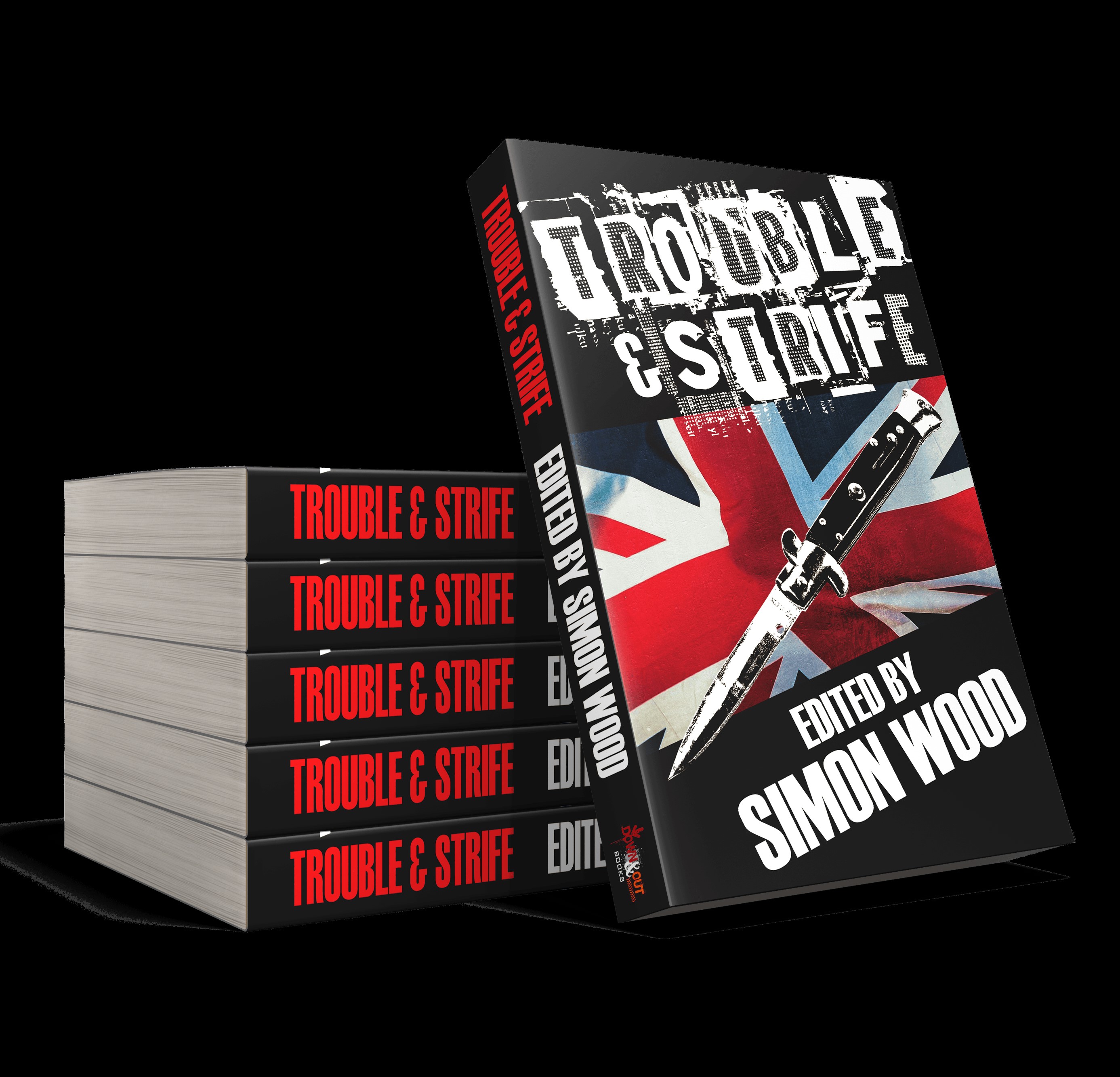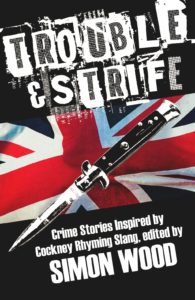 Colorful lanaguage has inspired my new book TROUBLE & STRIFE. I love colorful language. The sheer creativity of subverting our day to day speech is something I enjoy. That’s the essence of slang. Every culture uses slang where people throw away the formality of language to convey an emotion or a situation in a succinct phrase. In my opinion, no other slang form is more enjoyable than Cockney rhyming slang where rhyme is incorporated.
Colorful lanaguage has inspired my new book TROUBLE & STRIFE. I love colorful language. The sheer creativity of subverting our day to day speech is something I enjoy. That’s the essence of slang. Every culture uses slang where people throw away the formality of language to convey an emotion or a situation in a succinct phrase. In my opinion, no other slang form is more enjoyable than Cockney rhyming slang where rhyme is incorporated.
So what is Cockney rhyming slang? It’s essentially a code. You take a word, replace that word with a word that rhymes with it, then turn it into a phrase.
Example: the word ‘Look.’ Look rhymes ‘hook.’ Turn ‘hook’ into a phrase and you get ‘butcher’s hook.’ Butcher’s hook is a classic cockney rhyming slang for look.
Other classic rhyming slang phrases include:
Dog and bone…meaning phone.
Holy water…meaning daughter.
Plates of meat…meaning feet.
Sky rocket…meaning pocket.
If you’re really clever with your rhyming slang, it can be an ironic phrase for the original word, like with ‘Trouble and strife’ which is rhyming slang for ‘wife.’
Now the fun doesn’t stop there. Oh no! Invariably, to incorporate your rhyming slang into a sentence, you would drop the rhyming word and just say Butcher’s instead of Butcher’s Hook. So if someone said to you, “Give me a Butcher’s?” The person would be asking to have a look at something in your possession.
So what are the origins of Cockney rhyming slang? It originated out of London’s East End in the mid-1900’s and was supposedly used by criminals to prevent undercover cops from listening in on their conversations. Like many things in British culture, that explanation has been disputed. While there are several other similar explanations, none seem definitive. The only concrete information is when, where and by whom.
 Cockney rhyming slang still flourishes over a hundred and fifty years later. It’s no longer restricted to a particular enclave of London. It’s part of the national lexicon with regional differences and the incorporation of modern references have superseded many traditional phrases, such as ‘Chevy Chase’ overtaking ‘Boat race’ for meaning ‘face.’
Cockney rhyming slang still flourishes over a hundred and fifty years later. It’s no longer restricted to a particular enclave of London. It’s part of the national lexicon with regional differences and the incorporation of modern references have superseded many traditional phrases, such as ‘Chevy Chase’ overtaking ‘Boat race’ for meaning ‘face.’
The thing I love about Cockney rhyming slang is that the phrases paint colorful pictures. My favorite rhyming slang is the ‘Gypsy’s Kiss.” That creates such an imaginative visual of the story behind those two evocative words…although we should ignore that it’s actually slang for ‘piss.’ It was the evocativeness of Cockney rhyming slang that I wanted to use for this anthology. I wanted these colorful phrases to inspire the contributors to come up with a story. I chose writers from both the North America and the UK to exploit their familiarity and unfamiliarity with the rhyming slang.
To see what they came up with, turn the page and have a butcher’s. There’s more about the book and purchase it here.

